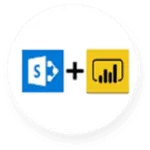Digital Transformation Consulting Services
Digital transformation is imperative for all businesses. We help companies in developing their digital plans in different business areas. We as Digital transformation consultants, create change that matters and transform businesses by blending technology and our industry expertise.
Just 2 years ago, not many businesses considered gearing up competencies in crisis management, enterprise agility, cost management, workforce resiliency, innovation, or cash-flow management. Today the game has changed.
‘Digital’ might have been the hottest topic of our discussions nowadays. It took us a Pandemic to understand that when we apply ‘digital’ to its fullest potential, the result is a data-driven, agile, customer-centrist, future-proof enterprise, that empowered people and made leaders capable to lead teams through competitive markets.
Digital Transformation to Stay Relevant and Competitive
Digital transformation is not new. Many organizations adopted or are in the process of going digital. Nevertheless, COVID-19 spotlighted it as an urgent necessity.

What is Digital Transformation?
Digital Transformation initiatives can be defined as the adoption of digital technology to accelerate business processes and activities strategically. It is more than technology disruption; it is about value, people, optimization, and capability to adapt to change using technology. Digital transformation strategy fundamentally changes how you operate and do business. It brings about cultural change and business transformation for organizations to continually challenge the status quo and accept failures on the way.
There must be a clear problem statement, untapped opportunity, or significant business goal to initiate digital transformation. With advanced technology providers, you can improve customer experience, achieve business agility, reduce friction, increase productivity or accelerate profitability, and more. However, Digitalization is a comprehensive word having different meanings to many people. Besides, digital transformation is loaded with cloud-native technologies, software, analytics, pragmatic approach, etc., making it difficult to differentiate between enablers and drivers.

Digital Transformation to Face the New Normal
Unknowingly many organizations encountered and responded bravely to new risks. They adopted comprehensive business models, increased digital capabilities, and accelerated their digital transformation journey.
Today going digital is not a luxury but the only way to survive. Even though organizations were not ready, the accelerating COVID situation forced them to embrace remote working and digital solutions. It accelerated their focus on employee experience, process automation, virtual events for team building, and a unified platform for communication and collaboration. Therefore, business leaders have changed their attitude from being reactive to proactive for strategic digital transformation using cloud platforms.
Here are the four most critical components driving digital transformation,
- Employees: Using digital delivery platform to make remote working employees more productive.
- Customers: Effectively using digital channels and technology tools to engage and communicate with customers.
- Process & Operations: Leveraging digital tool and digital platforms to streamline and automate processes and tasks.
- Products or Services: Implementing technology solutions to automation tools to build better products and deliver excellent services.

Power BI for Augmented Intelligence
Augmented intelligence is the combined capability of humans and Artificial Intelligence (AI). In a nutshell, it is an application of predictive modeling and Machine Learning that analyzes a large amount of data in seconds to assist people in decision making. It makes actionable data and analytical information available to humans for simplifying the decision-making process.
- Augmented intelligence is here not to replace humans but to strengthen them.
- It links artificial intelligence with human intuitions and knowledge so that people can work efficiently.
- Microsoft Power BI is a market leader in real-time business analytics. Recently Microsoft boosted its Machine Learning capabilities through native integration with Azure for helping analytics-driven organizations.
- Business analysts can now build ML models with Automated ML to solve complex business problems.
- Power BI offers text analytics capabilities providing connectors to web and social media data to perform entity recognition and sentiment analysis.
- The semantic search functionality in Power BI works by fully combining large numbers of data sources and indexing them to understand the associations.

Microsoft Azure for Cloud Computing
Cloud computing is the process of delivering on-demand computing services, typically over the internet and on a pay-as-you-go basis. It is a process of maintaining, storing, managing, processing, analytics, and data security by exploiting a network of internet-based- servers. It helps businesses manage the administration, streamline processes, enhance productivity, optimize costs, and improve the digital infrastructure experience.
- The cloud consists of three types of services – Software-as-a-Service (SaaS), Infrastructure-as-a-Service (IaaS), and Platform-as-a-Service (PaaS).
- Microsoft Azure is probably the only cloud provider offering a wholesome and consistent platform encompassing public, hybrid, and private cloud scenarios.
- Cloud computing places limitless computing and storage power into the hands of organizations of all sizes. It helps in increasing their pace of innovation and competition.
- Microsoft Azure is a market-leading platform with a strong foundation for cloud-first strategy.
- Azure has comprehensive services, tools, and marketplace solutions to deploy and manage critical applications. Besides, its security, compliance, and big data solutions help companies drive solid business advantages.
- By moving data and applications into Azure, businesses get multiple benefits like low costs, increased computing scalability, flexibility, management simplicity, and availability.
- Microsoft Azure offers all the necessary features to streamline workflows and institutionalize the cloud into business and IT operations, giving a competitive advantage.
- Azure helps leverage the industry’s best guidelines and techniques to govern the use of data in the cloud and automate IT service management (ITSM) processes.
- With Microsoft Azure, you get access to more than 100 cloud services for building, deploying, and managing versatile workloads from micro-services to internet-scale applications.
- Easily access .Net applications, SQL Server databases, DevOps and DevTest environments, SharePoint collaboration, Office and Exchange productivity, and big data analytics.

Power Automate for Automation Solutions
Automation is not cost-cutting, but it is about finding new opportunities. It is one of the key enablers of digital transformation. Automation solutions automate complex or repetitive business processes by eliminating the need for manual intervention. It helps the digital enterprises in accelerating process workflows and improving the accuracy and consistency of results.
- Automation solutions transform businesses into digital businesses. It connects systems and workflows to create seamless user experiences and enhance business agility with intelligent automation.
- Microsoft Power Automate helps streamline manual, repetitive tasks, and paper workflows that create bottlenecks for the hybrid and remote workforce.
- The low-code, drag-and-drop tools and hundreds of pre-built connectors in the Microsoft power platform automates repetitive mundane tasks allow everyone to create automated processes.
- The AI builder in Microsoft Power Automate makes your automation smarter and more intelligent. You can process forms using document automation, set process approvals, detect images and text, or create using pre-built models.
- Microsoft Power Automate offers a single platform having combined capabilities of robotic and digital and robotic process automation (RPA) for modeling processes by connecting all the data in Azure.
- It allows application automation without using APIs. Besides, the Power Automate Mobile app empowers users to manage and automate flows on the go.
- Create workflows easily with Logic Apps by working across your organization’s technology stack. Access more than 300 pre-built connectors to import data from systems such as SAP, Oracle, Salesforce, and Dynamics.
Access Power Automate from the interface in Dynamics 365 or Office 365 application or OneDrive. Use Power Automate App within Microsoft Teams – your collaborative workspace.

Artificial Intelligence for Digital Future
Artificial intelligence has been considered the central and most vital enabler of digital innovations. Artificial Intelligence is a collection of numerous technologies that allow machines to detect, understand, act, and learn either on their own or to augment human activities.
Artificial Intelligence, automation, and Machine Learning are breaking all barriers in modern industries. It is high time for businesses to embrace these technologies and leverage the multiple benefits they offer.
- Microsoft’s vision regarding Artificial intelligence is to enable every company to transform by bringing AI to every application, every business process, and every employee.
- Microsoft AI model at scale speeds up the innovation process by crusading infrastructure boundaries to achieve large-scale data and language processing.
- Using AI, developers can write codes without any bugs and at speed. It speeds us the development with stress testing and fuzzing.
- The incredible natural language features embedded in Microsoft Power Apps make AI apps building easier with OpenAI GPT-3.
- Leverage Artificial Intelligence to train intelligent controllers using Power Automate solutions so sense and adapt to the changing environment.
- Using Conversational AI from Microsoft crate bots with Azure Bot Services and add intelligent chat to your apps and channels having AI-powered bots for intent recognition and more.
- Create Machine Learning models for predictive modeling and access common tools to train, evaluate, and use those models in your daily business operations and processes.
- Use AI for knowledge mining by combining intelligent services. Train them to learn quickly from vast amounts of data for finding patterns at scale for uncovering hidden insights.
- Azure AI allows you to create innovative AI solutions and machine learning models with tools like Jupyter Notebook, Visual Studio Code, and open-source frameworks like TensorFlow and PyTorch.

Dynamics 365 for Customer Experience
Customer Experience (CX) is an approach adopted by businesses to engage with their customers, at every step of their buying journey. Right from marketing to sales and customer service to everywhere in between, customer experience covers each aspect of the customer lifecycle. In simple words, it is an aggregate of all interactions a customer has with a specific brand.
- Microsoft Customer Data Platform (CDP) understands the customers at a deeper level so organizations can engage with them throughout the customer lifecycle.
- The Dynamics 365 product line from Microsoft focuses on correlating the growing amount of data in the enterprise, collecting and understanding it to produce better customer experiences.
- The Microsoft Dynamics 365 Customer Insights has an intuitive and flexible customer data platform. It helps to unlock insights to offer a personalized customer experience.
- Using Microsoft Dynamics 365 Customer Service, you can build brand affinity and enhance customer loyalty as your teams get streamlined data and unified technology to deliver a seamless and personalized customer experience.
- Easily manage customer journey over different channels and digital touchpoints using Wysdom.AI. It is the most mature full-stack virtual assistant platform using Machine Intelligence to give businesses a comprehensive way to connect with customers, answer their queries, helps them in purchasing and transactions using natural language.
- Voice of the Customer in Dynamics 365 helps you to capture feedback regarding your products and services. Analyzing the responses helps find gaps in service, running targeted marketing campaigns, or sending offers to increase sales.
Microsoft Dynamics CRM helps centralize customer data and break down the data siloes to enable rich client relationships and personalized customer experience.
EPC Group Digital Transformation Consulting
Embark the way to a successful digital transformation journey with fabled Microsoft Consulting Services
EPC Group has helped several global organizations in transforming their businesses by their digital expertise and leveraging multiple cutting-edge technologies. They have developed a unique methodology and a structured approach to achieve digital transformation with a joint vision. Their certified and highly qualified technology specialists have a robust and practical approach to innovate, disrupt, and accelerate your business to scale.

- EPC Group is a Microsoft Gold Certified Partner offering Microsoft Technology consulting and digital transformation services for the last 24 years.
- EPC Group has a proven track record of assisting leading organizations with their digital transformation and enterprise automation effort leveraging the Microsoft platform.
- EPC Group drives innovation and efficiency with data-driven solutions. They unlock new opportunities and unify your business and IT Teams to make your digital transformation journey seamless.
- The digital transformation experts at EPC Group will understand your vision first and then will carve a roadmap of realistic, actionable, and transforming initiatives. The roadmap will have milestones approved by you focusing on innovation capacity, change management, and IT excellence.
From digital transformation consulting to software solutions, Azure consulting to Dynamics 365, and Power BI to Power Automate, EPC Group caters to every need, assuring great productivity achievements.
Why Choose Us
Why Organizations Recognize EPC Group's Consulting Services as the Industry Leader

EPC Group wrote the book on SharePoint & Power BI

Microsoft Partner for 25+ Years
Over 4 million Office 365 users successfully migrated
200+ years combined senior team migration experience




